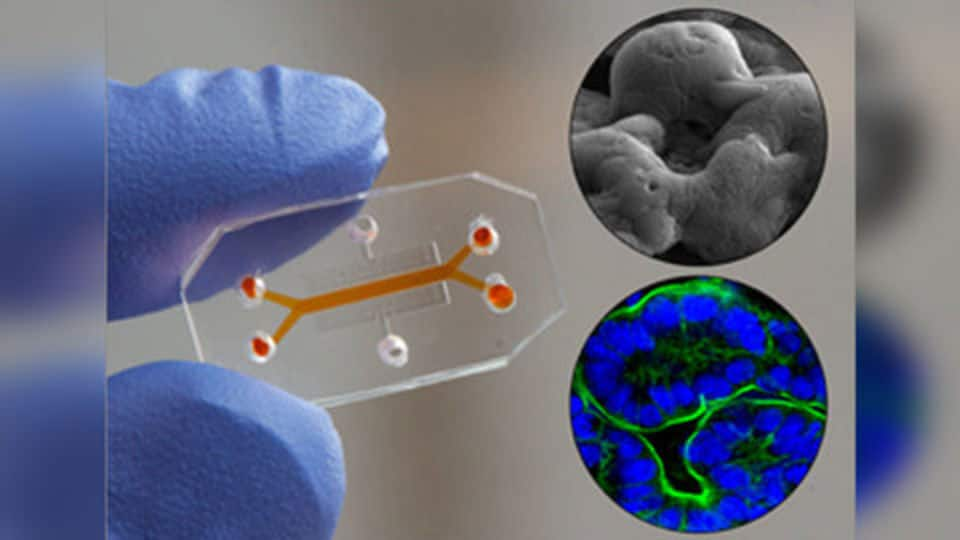
Scientists recreate human intestine environment inside organ-chip
What's the story
Researchers have been able to successfully replicate a human intestinal lining inside an organ-chip to carry out personalized treatments for gastrointestinal diseases. This Intestine-Chip is created using patient-derived cells and acts as a mini intestine, replicating the genetic fingerprint of the person who donated the cells. It is made out of a flexible polymer that can be lined with thousands of living human cells.
Purpose
Doctors can test drugs on the Intestine-Chip instead of patients
The Intestine-Chip can potentially help doctors test drug options on a patient's intestine, without putting them through drug treatments that might end up being costly, ineffective or harmful. It can be used to test a drug's effectiveness as it has the ability to store a patient's stem cells as well, a procedure that again doesn't require the patient to go through unnecessary tests.
Quote
Patients need not go through invasive surgeries
"This pairing of biology and engineering allows us to re-create an intestinal lining that matches that of a patient with a specific intestinal disease-without performing invasive surgery to obtain a tissue sample," Clive Svendsen from the Cedars-Sinai Board of Governors Regenerative Medicine Institute said.
Method
The chip accurately replicates a person's intestinal lining
To create the Intestine-Chip, researchers collected samples of blood and skin cells from adults and used "special proteins and other substances" to turn them into intestinal lining cells. The new cells were then used to grow miniature but accurate versions of the person's intestine lining. "We can produce unlimited copies of this tissue and use them to evaluate potential therapies," Svendsen said.
Information
Researchers collaborated with biotech start-up Emulate to make the chip
With the help of Emulate, a US-based biotech start-up, the researchers then put the cells from the intestinal lining, called organoids, inside the Intestine-Chips, which are about the size of AA batteries. This successfully recreated the natural environment of a human intestine.